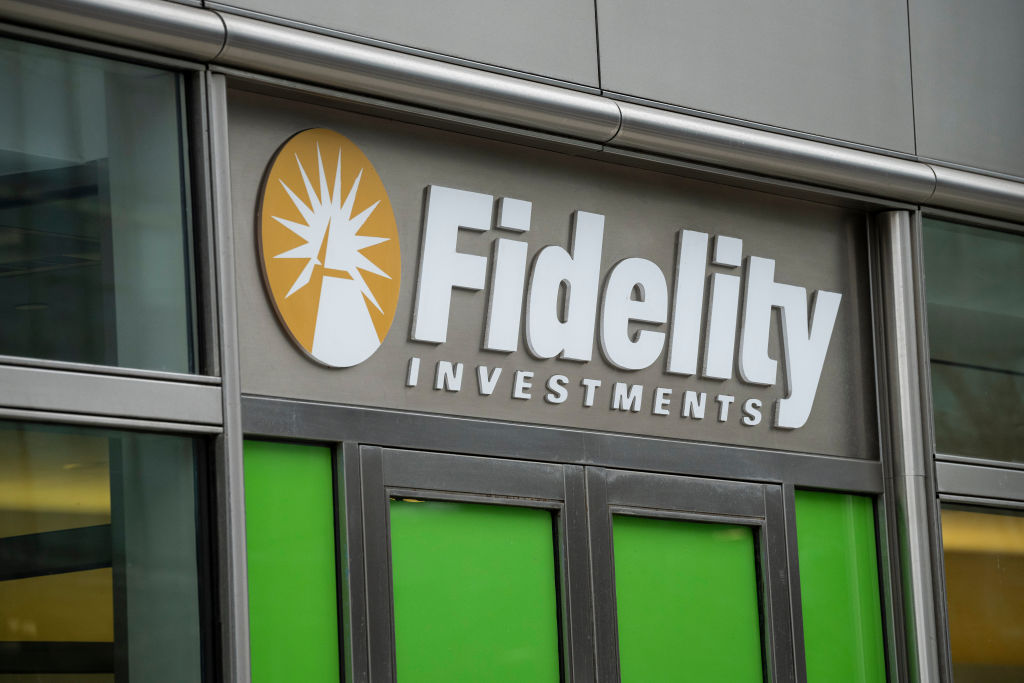The Best REIT ETFs to Buy
REIT ETFs can generate above-average real estate-linked income in a brokerage account without the hassle of property management.

Profit and prosper with the best of Kiplinger's advice on investing, taxes, retirement, personal finance and much more. Delivered daily. Enter your email in the box and click Sign Me Up.
You are now subscribed
Your newsletter sign-up was successful
Want to add more newsletters?

Delivered daily
Kiplinger Today
Profit and prosper with the best of Kiplinger's advice on investing, taxes, retirement, personal finance and much more delivered daily. Smart money moves start here.

Sent five days a week
Kiplinger A Step Ahead
Get practical help to make better financial decisions in your everyday life, from spending to savings on top deals.

Delivered daily
Kiplinger Closing Bell
Get today's biggest financial and investing headlines delivered to your inbox every day the U.S. stock market is open.

Sent twice a week
Kiplinger Adviser Intel
Financial pros across the country share best practices and fresh tactics to preserve and grow your wealth.

Delivered weekly
Kiplinger Tax Tips
Trim your federal and state tax bills with practical tax-planning and tax-cutting strategies.

Sent twice a week
Kiplinger Retirement Tips
Your twice-a-week guide to planning and enjoying a financially secure and richly rewarding retirement

Sent bimonthly.
Kiplinger Adviser Angle
Insights for advisers, wealth managers and other financial professionals.

Sent twice a week
Kiplinger Investing Weekly
Your twice-a-week roundup of promising stocks, funds, companies and industries you should consider, ones you should avoid, and why.

Sent weekly for six weeks
Kiplinger Invest for Retirement
Your step-by-step six-part series on how to invest for retirement, from devising a successful strategy to exactly which investments to choose.

Direct real estate investing is rarely hands-off. You need capital for a down payment, closing costs, inspections and renovations. You need to market the property, screen tenants, write leases, collect rent, respond to maintenance issues and deal with late payments.
You may need to hire contractors, handle unexpected repairs, replace appliances, manage vacancies and keep track of insurance, property taxes and utilities. Even small issues such as plumbing backups or a broken furnace can turn into costly emergencies that require immediate attention.
Over time, the hours involved can feel more like running a small business than owning a passive investment. For anyone who wants real estate exposure without that workload, real estate investment trusts, or REITs, are an appealing alternative.
And just as investors can buy sector-specific exchange-traded funds that target areas such as technology or energy, the popularity of real estate investing has led to a wide range of REIT ETFs. These funds bundle dozens or even hundreds of REITs into a single ticker, giving you diversified exposure across property types without needing to evaluate each one individually.
Why invest in a REIT ETF?
REITs own income-producing properties such as apartments, warehouses, data centers and medical offices. They are legally required to distribute at least 90% of their taxable income to shareholders. This often results in higher-than-average dividends, although the income is not always tax-efficient.
Even so, REIT investing is not as simple as it might seem. Unless you blindly buy individual REITs, you still need to evaluate them with the same level of care used for other sectors, but with more specialized knowledge that doesn't translate well from regular stocks.
For example, you need to understand occupancy ratios, which measure how much of the property portfolio is leased. You need to track same-store net operating income to see whether the REIT is growing the profitability of its existing properties.
Earnings per share are not useful here because REITs rely on a different measure called funds from operations, or FFO, that accounts for depreciation on their properties. You need to know whether the dividend payout is reasonable relative to FFO. You also need to understand why a REIT may issue new shares and dilute existing holders, and whether it has access to liquidity through credit facilities, revolving credit lines or other sources of funding.
All of this can turn REIT stock picking into a full-time hobby, which defeats the purpose for investors who want simple, transparent real-estate exposure while remaining hands-off.
But a diversified REIT ETF can handle the analysis, portfolio construction and rebalancing for you. You might not get the occasional multibagger that comes from owning a single standout REIT, but you do get broad property exposure, steady income and far more of your time back.
Moreover, REIT ETFs help reduce idiosyncratic risk. Individual REITs do not operate in a vacuum. Their fortunes depend on the tenants leasing their properties, and these tenants vary widely across the real estate universe.
For example, a residential REIT focused on apartments faces very different drivers of risk compared to a health care REIT that owns retirement communities. An industrial REIT managing self-storage facilities does not move in lockstep with a commercial REIT that owns class A office towers in Manhattan.
The COVID-19 period made this clear. Senior care homes and office buildings faced severe challenges, while warehouse properties tied to e-commerce demand surged. Self-storage benefited as people downsized or reorganized their living situations.
This variety is exactly why diversification matters. Each property type moves through its own cycle, with peaks and troughs that rarely line up. Holding a basket of REITs averages these effects out, smoothing the experience for investors and reducing the impact of any one weak segment.
A diversified REIT ETF captures the broad trends, avoids concentrated bets on any single property type, and provides a more stable path to real estate income.
How we picked the best REIT ETFs
Picking the best REIT ETFs is more nuanced than it appears. This is a specialized segment, and the right choice depends heavily on an investor's risk tolerance and objectives. To make our list broadly applicable, we approached it from a simple question: Which REIT ETFs would best complement a diversified portfolio of stocks and bonds?
With that in mind, we immediately ruled out several types of REIT ETFs that are too narrow for most investors. A popular theme since 2023 has been data-center REITs tied to the AI boom. These carry significant idiosyncratic risk and behave more like technology stocks, which defeats the purpose of adding real estate for stability and income. We also excluded ETFs that focus only on residential properties, since many investors already have exposure through homeownership.
Mortgage REITs were removed as well. Although they include "REIT" in their name, they do not own physical property. They invest in mortgage-backed securities and rely on borrowing at short-term rates to buy longer-dated assets, aiming to profit from the spread. This carries meaningful risk, especially when interest rates rise, even though these REITs often advertise very high yields.
After narrowing the universe, we applied our usual three-part criteria:
- Fees: We capped expense ratios at 0.15% to ensure investors keep as much income and appreciation as possible.
- Liquidity: We required a 30-day median bid-ask spread of 0.10% or less to minimize trading slippage.
- Assets under management: We limited our selection to ETFs with at least $1 billion in AUM to reduce closure risk and benefit from economies of scale.

Vanguard Real Estate ETF
- Assets under management: $33.7 billion
- Expenses: 0.13%
- Yield: 3.6%
- 30-day median bid-ask spread: 0.01%
Vanguard's flagship REIT ETF is the Vanguard Real Estate ETF (VNQ). It tracks the MSCI US Investable Market Real Estate 25/50 Index and provides broad exposure to publicly listed real estate companies.
About 14.5% of the fund is allocated to a Vanguard institutional real estate index fund, with the remainder is invested directly in a wide mix of REITs. This multi-sector approach covers retail, industrial and health care REITs as its largest subsectors.
One important detail is that VNQ is not a pure-play REIT ETF. It holds a small portion of real estate operating and development companies that are not structured as REITs.
Another distinction is that VNQ does not report a 30-day SEC yield. Instead, it reports an unadjusted effective yield that reflects the distribution amount, including possible return of capital and capital gains.

State Street Real Estate Select Sector SPDR ETF
- Assets under management: $7.4 billion
- Expenses: 0.08%
- Yield: 3.4%
- 30-day median bid-ask spread: 0.02%
The State Street Real Estate Select Sector SPDR ETF (XLRE) is part of State Street's lineup of 11 "Select Sector" ETFs, each representing a slice of the S&P 500. This means the 31 REITs in XLRE are all large or mid-cap stocks that already meet the S&P 500's screens for size, liquidity and earnings consistency.
Because XLRE is market-cap-weighted, its top holdings look similar to those found in VNQ, though the portfolio is more concentrated and skews toward larger REITs.
Liquidity is a major advantage here, with tight spreads and high trading volumes. XLRE also has a full options chain, which is useful for investors who want to implement strategies such as covered calls.

iShares Core U.S. REIT ETF
- Assets under management: $3.3 billion
- Expenses: 0.08%
- Yield: 3.2%
- 30-day median bid-ask spread: 0.03%
The iShares Core U.S. REIT ETF (USRT) is part of iShares' "Core" family of low-cost, broadly diversified index funds meant for long-term portfolios. While iShares offers other real estate-focused funds, including mortgage REITs and more specialized property types such as residential, USRT is the most general-purpose and beginner-friendly.
It tracks the FTSE Nareit Equity REITs 40 Act Capped Index. Although this benchmark differs from the ones used by VNQ and XLRE, market-cap weighting and the limited number of large REITs available mean the top holdings look familiar across all three. This overlap also makes USRT a useful tax-loss harvesting partner for either VNQ or XLRE.

Schwab U.S. REIT ETF
- Assets under management: $8.4 billion
- Expenses: 0.07%
- Yield: 3.5%
- 30-day median bid-ask spread: 0.05%
The Schwab U.S. REIT ETF (SCHH) is one of the most affordable REIT ETFs available. Its 0.07% expense ratio equates to $7 in annual fees for a $10,000 investment.
SCHH tracks the Dow Jones Equity All REIT Capped Index, which includes 124 REITs and excludes mortgage REITs and hybrid REITs. These exclusions help keep the portfolio focused on companies that directly own physical properties.
Despite differences in index construction, SCHH's top holdings and subsector weights are similar to VNQ and USRT, given the limited number of large, liquid U.S. REITs. This similarity also makes SCHH a suitable option for tax-loss harvesting when REITs experience meaningful drawdowns.

Fidelity MSCI Real Estate Index ETF
- Assets under management: $1.1 billion
- Expenses: 0.084%
- Yield: 3.2%
- 30-day median bid-ask spread: 0.04%
Fidelity is best known for its mutual funds, but its ETF lineup has expanded steadily. The Fidelity MSCI Real Estate Index ETF (FREL) is Fidelity's primary index-based REIT ETF, sitting alongside the more expensive actively managed Fidelity Real Estate Investment ETF (FPRO). FREL is priced competitively with the other low-cost options on this list.
It tracks the MSCI USA IMI Real Estate Index. Instead of full replication, the fund uses a sampling approach, holding a representative subset of securities rather than every REIT in the index. This helps reduce trading costs while still maintaining similar performance and risk characteristics to the benchmark.
Learn more about FREL at the Fidelity provider site.
Related content
Profit and prosper with the best of Kiplinger's advice on investing, taxes, retirement, personal finance and much more. Delivered daily. Enter your email in the box and click Sign Me Up.
Tony started investing during the 2017 marijuana stock bubble. After incurring some hilarious losses on various poor stock picks, he now adheres to Bogleheads-style passive investing strategies using index ETFs. Tony graduated in 2023 from Columbia University with a Master's degree in risk management. He holds the Certified ETF Advisor (CETF®) designation from The ETF Institute. Tony's work has also appeared in U.S. News & World Report, USA Today, ETF Central, The Motley Fool, TheStreet, and Benzinga. He is the founder of ETF Portfolio Blueprint.
-
 Quiz: Do You Know How to Avoid the "Medigap Trap?"
Quiz: Do You Know How to Avoid the "Medigap Trap?"Quiz Test your basic knowledge of the "Medigap Trap" in our quick quiz.
-
 5 Top Tax-Efficient Mutual Funds for Smarter Investing
5 Top Tax-Efficient Mutual Funds for Smarter InvestingMutual funds are many things, but "tax-friendly" usually isn't one of them. These are the exceptions.
-
 AI Sparks Existential Crisis for Software Stocks
AI Sparks Existential Crisis for Software StocksThe Kiplinger Letter Fears that SaaS subscription software could be rendered obsolete by artificial intelligence make investors jittery.
-
 5 Top Tax-Efficient Mutual Funds for Smarter Investing
5 Top Tax-Efficient Mutual Funds for Smarter InvestingMutual funds are many things, but "tax-friendly" usually isn't one of them. These are the exceptions.
-
 Why Invest In Mutual Funds When ETFs Exist?
Why Invest In Mutual Funds When ETFs Exist?Exchange-traded funds are cheaper, more tax-efficient and more flexible. But don't put mutual funds out to pasture quite yet.
-
 Social Security Break-Even Math Is Helpful, But Don't Let It Dictate When You'll File
Social Security Break-Even Math Is Helpful, But Don't Let It Dictate When You'll FileYour Social Security break-even age tells you how long you'd need to live for delaying to pay off, but shouldn't be the sole basis for deciding when to claim.
-
 I'm an Opportunity Zone Pro: This Is How to Deliver Roth-Like Tax-Free Growth (Without Contribution Limits)
I'm an Opportunity Zone Pro: This Is How to Deliver Roth-Like Tax-Free Growth (Without Contribution Limits)Investors who combine Roth IRAs, the gold standard of tax-free savings, with qualified opportunity funds could enjoy decades of tax-free growth.
-
 One of the Most Powerful Wealth-Building Moves a Woman Can Make: A Midcareer Pivot
One of the Most Powerful Wealth-Building Moves a Woman Can Make: A Midcareer PivotIf it feels like you can't sustain what you're doing for the next 20 years, it's time for an honest look at what's draining you and what energizes you.
-
 Stocks Make More Big Up and Down Moves: Stock Market Today
Stocks Make More Big Up and Down Moves: Stock Market TodayThe impact of revolutionary technology has replaced world-changing trade policy as the major variable for markets, with mixed results for sectors and stocks.
-
 I'm a Wealth Adviser Obsessed With Mahjong: Here Are 8 Ways It Can Teach Us How to Manage Our Money
I'm a Wealth Adviser Obsessed With Mahjong: Here Are 8 Ways It Can Teach Us How to Manage Our MoneyThis increasingly popular Chinese game can teach us not only how to help manage our money but also how important it is to connect with other people.
-
 Looking for a Financial Book That Won't Put Your Young Adult to Sleep? This One Makes 'Cents'
Looking for a Financial Book That Won't Put Your Young Adult to Sleep? This One Makes 'Cents'"Wealth Your Way" by Cosmo DeStefano offers a highly accessible guide for young adults and their parents on building wealth through simple, consistent habits.

